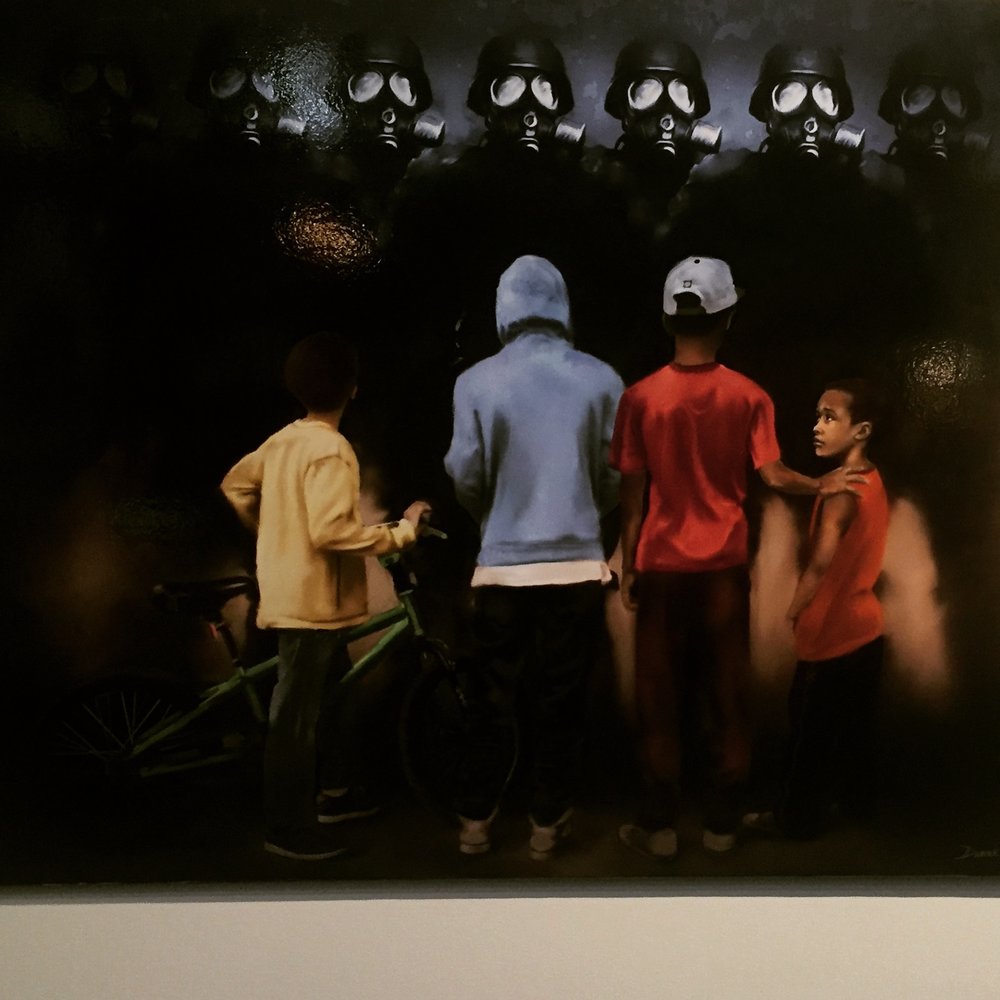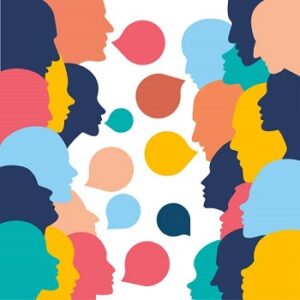“Get close to the things that matter, get close to the places where there is inequality and suffering, get close to the spaces where people feel oppressed, burdened, and abused. See what it does to your capacity to make a difference, see what it does to you.”
Bryan Stephenson
Getting proximate.
The past year has been an exploration in proximity. Living in DC I live my own version of C-SPAN. I love unfiltered news so being in a city where news is made and where citizens can show up and watch live, is pretty cool.
Today I spent the day in Baltimore. I felt a strong desire to be there to witness the verdict in the latest trial of one of the officers charged with Freddie Gray’s death. I wanted to get proximate. To feel the community’s angst and to understand the legal reasoning behind what seemed like a likely verdict of acquittal.
As I walked a block or so to the courthouse, I dodged cameras. Mobs of media swarmed around the scores of activists gathered outside.
“Indict! Convict!
Send those killer cops to jail.
The whole damn system is guilty as hell!”
The whole damn system.
Feet away dozens of swat-like law enforcement officers stood armed and ready for whatever may arise. Gathered together in solidarity. Just as emotionally invested in the outcome of this trial.
Both sides yearning for justice and for peace.
I sat in the overflow court room watching Judge Barry Williams on a flat screen television facing a room filled with lawyers, reporters and onlookers.
Officer Goodson, as the driver of the transport van, faced the most serious charges of the 6 indicted: second degree depraved heart murder, second degree assault, misconduct in office, manslaughter (involuntary), manslaughter by vehicle (gross negligence), manslaughter by vehicles (criminal negligence), reckless endangerment.
The State argued that Officer Goodson gave Freddie Gray a “rough ride.” But had insufficient evidence to back that argument up.
Judge Williams clearly laid out his legal analysis. He said there were five equally plausible scenarios that could have led to Mr. Gray’s injury. According to the medical examiner, there was no evidence to discern one scenario was more or less likely than another. The judge closed with, “The failure to seat belt may have been a mistake or it may have been bad judgment, but without showing more than has been presented to the court concerning the failure to seat belt and the surrounding circumstances, the state has failed to meet its burden to show that the actions of the defendant rose above mere civil negligence.” Acquittal of all charges.
Sitting there, in the sterile courtroom surrounded by suits, listening to a well thought out legal analysis, the verdict sounds right. Legally speaking. But outside, those fighting for justice for Freddie, it feels so wrong. Freddie Gray would not have died that day without the intervention from law enforcement. And it seems increasingly more likely that no officer will be held criminally accountable for Freddie Gray’s death.
What led to the arrest in the very first place was Freddie running away after making eye contact with a police officer. No reasonable suspicion in the first instance. Certainly no probable cause. Just a 25-year-old young man with a record who saw a cop and ran. Should the officer have chased him? Would Freddie still be alive if the officer had opted against a chase and, instead, chose a path of de-escalation? Freddie Gray stopped running and submitted after an officer yelled and threatened to taze him. We saw footage of his arrest, of his writhing and screaming in pain. And now he is dead. And a community in Baltimore and communities around the country mourn the loss of another black life and of the growing distrust between police and the communities they serve. And a growing belief that the system is not designed to serve justice for all.
Life is full of nuance. Intellectually, Judge William’s reasoning is sound. Sitting in that court room removed from the emotions outside, this verdict seems fair. But it doesn’t satiate the growing call for real justice, for real reform and for real healing. Naturally, we turn to the justice system for relief. But in this case, and in so many, the whole damn system is guilty as hell…



